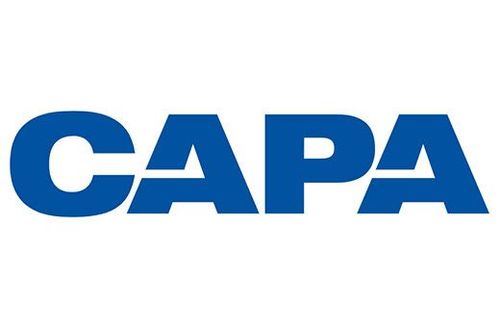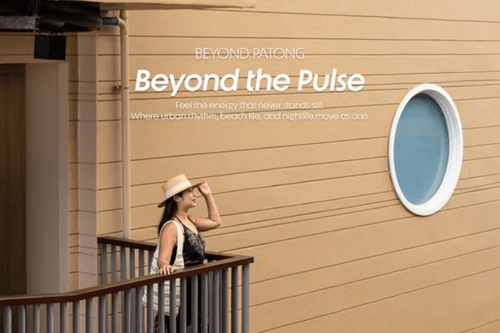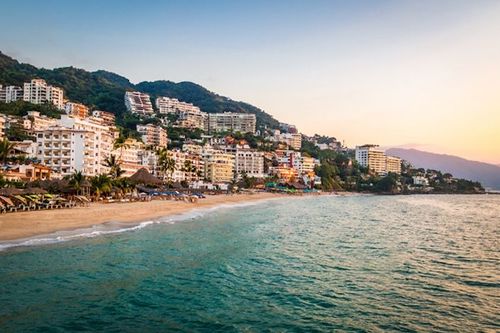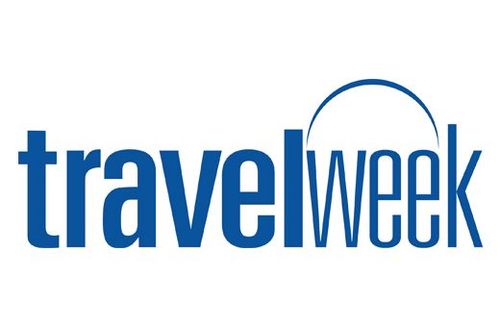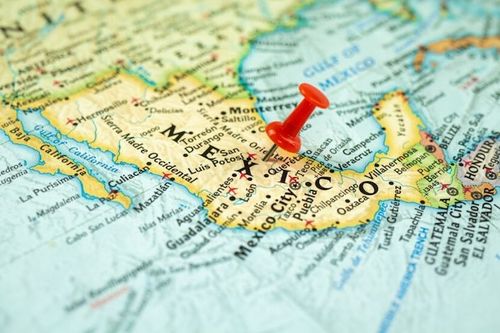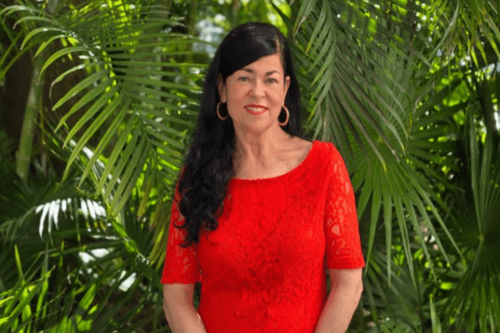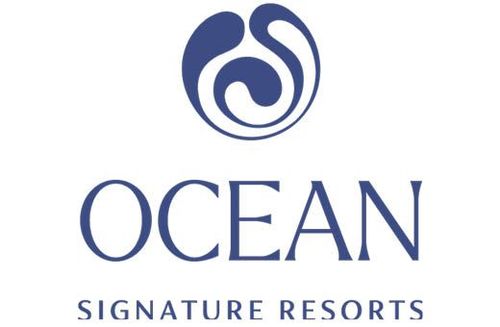Where travel agents earn, learn and save!
News / CAPA Live: United’s Kirby – government subsidies “a unique situation”
United Airlines CEO Scott Kirby believes international traffic will back even strongly than domestic by 2023
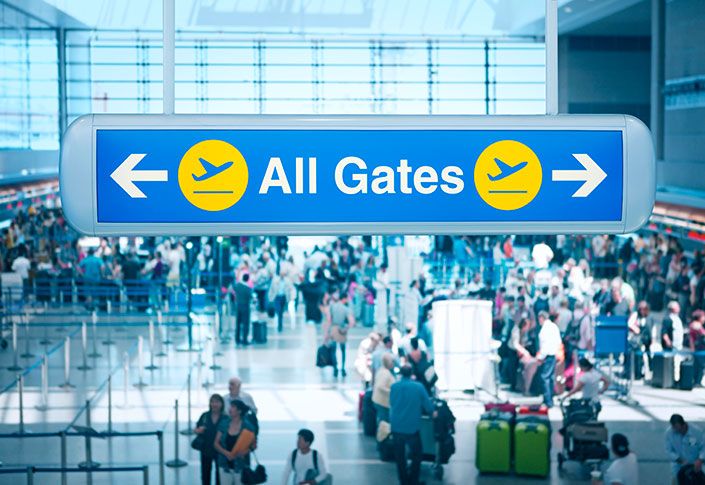
March 22 - United Airlines CEO Scott Kirby believes business and international travel will come back with international traffic coming back even strongly than domestic by 2023.
The airline has permanently eliminated change fees and is serious about changing the customer culture.
United Airlines has committed to becoming 100% green by 2050 without using carbon offsets. The airline has partnered with Oxy1PointFive* to be the world’s largest direct air capture and sequestration which sucks carbon directly out of the atmosphere and permanently stores it underground so it’s permanently gone.
CEO Kirby says recent government subsidies are a unique situation which supports aviation as a critical part of the infrastructure, as opposed to just ongoing regular support of businesses that don’t have a workable business model.
Mr Kirby believes “Business travel will come back because it’s about relationships, it’s not transactional”.
Talking at the CAPA Live on March 10, 2021, United Airlines’ CEO Scott Kirby spoke with KornFerry Partner Michael Bell. Some of the key highlights can be found below.
What's the worst case scenario?
"There’s always something worse than a worst case scenario and we were realistic and accurate from the beginning, before anyone else thought it was an issue. We completed a USD2 billion bridge financing deal and started cutting capacity ahead of time…. I think, we've set United up. United is going to be on the other side of this, the leading airline in global aviation.”
“I’ve always been fond of never allowing people to say “worst case scenario,” because I’ve always said there’s something worse. Sadly, that turned out to be prophetic, because this is worse than everyone’s downside planning scenarios. But I’ve been really proud of how we dealt with it at United. One of the keys for us was being realistic and accurate from the very beginning. We started literally the last weekend in February.
“So at this time a year ago we were having meetings before anyone else really thought it was a big issue. It was the next week really where the NBA shut down and everyone realised it was a big issue. We had been having meetings. And by this point in time, a year ago, we completed a USD2 billion bridge financing deal and we’d already started cutting capacity. We’d already started the planning. We’d already started talking to our pilots union about a deal that we were going to need to do, and they were like, “What are you talking about?” at that point in time. We’d started all the planning ahead of time.
"United is going to be on the other side of this, the leading airline in global aviation.”
“And that gave us a huge advantage, because we started with, at least for US airlines, probably the largest headwinds of anyone. We're the biggest business airline. We're the largest coastal gateway. It's by far the largest international airline, all places that got hit the hardest. And yet, if you go back and look at, and on any apples to apples basis, our cash burn for example going through, and you adjust it for size, we even beat the low cost carriers that are purely domestic. And so we've just done a really amazing job of that. And more importantly I think, we've set United up. United is going to be on the other side of this, the leading airline in global aviation.”
We’ve used the opportunity to reset the business with a huge focus on customer culture, like permanently eliminating change fees. We concluded that business travel ultimately was going to come back. We are now 5% larger in terms of widebody fleet than before the pandemic.
“We really have used the opportunity to reset the business in all kinds of ways. But because we’ve been confident in our accuracy, back in April we concluded that business travel ultimately was going to come back. Almost everyone said that wasn’t going to happen and still today a lot of people say it. We also reached the conclusion that our best guess was that international travel would also come back. It’d be slower because borders aren’t going to come down yet, but once borders come down international travel’s going to come back I think even stronger than domestic travel.
United "now 5% larger in terms of widebody fleet than when the pandemic started"
“So on the network side we've made unique decisions. Basically, every other large global carrier in the world retired big chunks of their widebody fleet. I think we're now 5% larger in terms of widebody fleet than we were when the pandemic started. We were the only ones that did that because we had a different view of what the recovery looked like. We've had a huge focus on changing the customer culture. We were going to do that before, but the pandemic gave us new opportunities to do it.
Things like permanently eliminating change fees was one of the big ones. But those kinds of things also led to convincing our employees that we were serious about changing the customer culture. And I also think the shock of in March and April of last year, seeing four or five people on an airplane, not that anyone took customers for granted, but it emphasised how important, and those are the people that pay our salaries going forward. We’ve done a lot of with costs too, but those are the kinds of things that set us up to be different than everyone else on the other side of the crisis.”
Business travel will come back because it’s about relationships, it’s not transactional. I’m fond of saying, the first time someone loses a sale to a competitor who showed up in person is the last time we’ll do a sales call on Zoom.
"Almost everyone" disagrees with me on business travel recovery
“I admit that I have a view that is not the consensus. Almost everyone disagrees with it. But business travel is not transactional. It's about relationships. And reading a newspaper on a piece of paper or online is transactional. It doesn't make any difference, because you read a newspaper alone. But going to an event like this and socialising with people and having drinks, that's where you get to know people. That's the people you can pick up the phone and call when you need them. And we're not going to get that here today. You're going to hear from me and me only.
“And if we were doing this in person somewhere, you would hear that. But then I would get to know a bunch of you and know something about you and your families and develop a relationship after. This is human nature. This is a question about human nature instead of technology. And human nature has not changed.
“I’ve been fond of saying, the first time someone loses a sale to a competitor who showed up in person is the last time we’ll do a sales call on Zoom, and I think that’s going to be true. And look, people were having this conversation 20, 25 years ago when video conferencing first started, the death of business travel, and it was just wrong. It was wrong then and it’s wrong now… It is exactly the same conversation. Maybe the technology’s a little better, but it’s exactly the same conversation.
“I don’t know that per se we can get the business traveller to come back soon but we are trying to make the flying experience for everyone different. Instead of being a necessary, but unwelcome part of your wonderful vacation or business trip, to make the travel experience better. I’m prone to saying with our employees when I talk to them that I condense my job down to two simple things. One, make all of our employees proud, and two, get our customers to like us. And hopefully someday we’ll convince them to love us, but first step, get them to like us. And that’s about running a great airline, being honest, being transparent. But it’s more than that.”
"We’ve changed the conversation on climate change"
"We’ve changed the conversation on climate change because we have a high profile brand. Others have committed to be 100% net-zero by 2050 but we are committed to getting to 100% without using carbon offsets, because the truth is that most carbon offsets aren’t even real.
“I have been pleasantly surprised at the actions we’ve taken on climate change. I get some of the most emotional, positive feedback of anything that we’ve done, really changing how people feel about United Airlines by standing for something that’s bigger than just being an airline. And I’m more and more convinced that we actually have a platform that we can do things to change the world. We’re doing a lot at United on climate change. It’s not just about what we’re doing, but we’ve also had an opportunity to change the conversation with others, and we’re going to have a magnified impact because we have a high profile brand, and we have a platform, that we can have a magnified impact.”
“Others have committed to 100% net-zero, other companies at least. What we did, we called it 100% green, which is different than the net-zero. And a big, big difference; the most important difference, is that we committed to getting to 100% without using carbon offsets. Today, basically everyone that says they’re going to get to net-zero uses carbon offsets. And the truth is that carbon offsets, most of them aren’t even real.
“First of all, what we’re going to do is reduction through things like sustainable aviation fuel, which is a huge component of what we’re doing. But the other one is direct air capture and sequestration. And unlike a carbon offset, which is basically planting trees.
"We simply can't plant 4,000 times as many trees. There's not space on the planet."
“And by the way, we produce 4,000 times as many annual emissions since the industrial era began. We simply can't plant 4,000 times as many trees. There's not space on the planet. But what we can do and what we're doing is we're a partner with Oxy1PointFive* and the first, what will be the world's largest direct air capture and sequestration. It sucks carbon directly out of the atmosphere and permanently stores it underground, so it's permanently gone. It's not a tree that's going to die later and put the carbon back into the atmosphere. It permanently stores the carbon underground. And each plant can store the equivalent of planting 40 million trees per year. This is what the solution ultimately has to be.
“And what I hate about traditional carbon offset programmes is so many companies are using them, and they are a fig leaf for a CEO to write a check, check a box, pretend that they’ve done the right thing for sustainability when they haven’t made one wit of difference in the real world. And so we’re focused on something that can really make a difference. And that’s why, like I say, that as we’re looking at changing how people feel about aviation, this conversation, when I have it with people in Washington, DC, or other places that actually understand climate change, it completely changes their perspective of United and it’s a real opportunity for us to lead.”
The explicit goal is to do the right thing. When you start just doing the right thing instead of focusing on the transactional elements of the business, it really starts to change how people feel.
"It's taken us far too long to accept the scientific reality" of climate change
“I apologise for sounding egotistical but it's a personal passion of mine. I've cared about it, thought it. I can remember being in college at the Air Force Academy and reading the early research and articles in science journals about climate change and the potential for what climate change meant, literally 35, 40 years ago. And it became clear, in the '90s it was clear that it was happening, and it's taken us far too long to accept the scientific reality. And the problem with climate change is, there are these dramatic tipping points that could happen.
“The change of the Gulf Stream, where it no longer warms Europe. And there’s some others that are just these dramatic tipping points that fundamentally alter our societies and how we can live. And they’re irreversible once they happen. They could reverse in tens of thousands of years, but they’re essentially irreversible. And it is the defining issue for our generation to solve, and I now have a platform in a position where we can actually make a difference.
“The explicit goal is to do the right thing. But what you find, and we’ve got a bunch of things that are happening with diversity, equity and inclusion that fit into a similar category. When you start just doing the right thing instead of focusing on the transactional elements of the business, it really starts to change how people feel. Employees, customers, people in Washington, DC, the general public. It really starts to change how people feel about it.
“One of my stories that I love on climate change is after our big climate change announcement I was here in Dallas and this is where my family lives, and I was running and I was a mile and a half, two miles from the house. The sun wasn’t even up so it was dark outside. And somebody stopped me, a stranger stopped me, which kind of annoyed me at first because it’s the middle of my run. But she stopped me to say, ‘I saw what United did for climate change. Thank you. You know, your announcement. It was just really positive.’ And this is here.
“This is a relatively small market for United. I had no idea she would even know who I was. But the point is, while that was an anecdote, that’s the kind of thing that really, really makes a difference and people can feel passionately about.
"Being able to lead (on emissions) is going to be better for our shareholders in the long term"
“If you are a very short term-oriented investor, which we have a whole bunch of, that are worried about what is RASM next quarter. You don't care at all about this because it's not going to affect RASM next quarter. If you're a long-term investor, if you don't care about it, you're wrong.
“Because either carrots or sticks, this is coming, and being able to lead is going to be better for our shareholders in the long term. So I think really from an investor perspective, it depends on whether you are a day trader and you’re focused on what’s going to happen next week, or if you’re buying for the long term. And I’m focused on the long term.”
On subsidies - unlike the Gulf carriers, "We were self-sustaining before, we're going to be self-sustaining afterwards."
Government has supported aviation as a critical part of the infrastructure. This is a unique situation as opposed to just ongoing regular support of businesses that don’t have a workable business model.
“In short I think it really doesn’t change the conversation at all. A once in a lifetime or once in a century crisis, governments basically around the world, this isn’t unique to the US, almost around the world with a few exceptions, but mostly around the world have supported aviation. Not just aviation, but they’ve supported aviation as a critical part of the infrastructure, just like they’ve supported other parts of the economy that were hit by COVID through no fault of their own.
"And so I think that is a unique situation, as opposed to just ongoing regular support of businesses that don’t have a workable business model. We were profitable before, we’re going to be profitable after. We were self-sustaining before, we’re going to be self-sustaining afterwards. That’s true of us. That’s true of Air France. That’s true of Lufthansa. That’s true of Air New Zealand. Around the world, that’s true. And the difference is, if you were losing money before, you’re going to be losing money afterwards without state support. I think that’s a different kind of state subsidy you’re getting through.”
On industry rationalization - not "surprised to see an expansion of the IAG model"
I wouldn’t be surprised to see an expansion of the IAG model where airlines form groups. There are still national airlines but being together they create synergies and support for one another
“I don’t know, is the short answer. And I think it varies. I don’t think there’s one answer. There’s some governments around the world that are supporting airlines when the home country, frankly, isn’t large enough to have an airline close to the size that they want to support, but they’re choosing to do that. There’s others, I wouldn’t be at all surprised to see an expansion of, I’ll call it the IAG model, where airlines form groups. There’s still Iberia, Aer Lingus, British Airways. There are still national airlines, but by being together they create some kinds of synergies and support for one another. I wouldn’t be surprised if that didn’t happen in some regions of the world because it can create value and still be good for each of the home airlines. But it really is dependent on situation by situation.
“It may not happen, but it would certainly I think be logical and so I wouldn’t be surprised to see it happen. I think it could be good for the airlines involved in it, and for the countries, for employment. It’s one of those things that can be a win-win-win if you can get over the social issues of putting two airlines together.”
New entry won't hurt United
"The European market is going to be one of the strongest in the world coming out of this. But flying a narrowbody to Gatwick on JetBlue compared to us flying six flights a day on widebodies with Polaris seats into Heathrow.
“I think the European market is going to be one of the strongest markets in the world coming out of this. Because there were players in the Atlantic who had a business, they’ve never made money. They had a business model that had no chance of ever making money. And it was just a matter of how long they were going to keep burning the furniture to keep flying and pricing the product below their costs, and they’ve gone away.
“And you contrast that with JetBlue coming into the market, and JetBlue, they’re a good competitor, but flying a narrowbody once a day into Gatwick compared to us flying six flights a day on widebodies with Polaris seats into Heathrow.”
"No one has a liquidity issue. Everyone is going to survive."
“At the beginning of the crisis I thought there were going to be failures, or at least there was a good chance. But we've been able to raise so much liquidity, not just through government but through the private capital markets, that no one has a liquidity issue. Everyone is going to survive. The reason I thought it would happen earlier is because the choice would be something even worse and no one is faced with that choice today, and so I don't think there'll be any major consolidation here in the US, but I guess we'll see.”
“It is true that the leisure and domestic market is going to be the first to recover. But I will bet you dollars to donuts that in 2023 long haul international is going to be outperforming domestic by a very wide margin. It’s just a timing issue.
“And I think another big difference, certainly I can speak for United, what has propelled the low cost carriers in past recessions are fuel price spikes, because airlines like United would shrink and just surrender market share to them. So it was easy.
“One of the analysts wrote last week, this is what he hopes happens, actually, I think, but that when times are tough, the network carriers push back from the table and leave the table scraps for the low cost carriers, and everyone is happy. I can promise you, United Airlines is not doing that.
We have 94 "narrowbody airplanes for domestic growth in 2022 and 2023"
We just did another order. We're going to take delivery of more airplanes, narrowbody airplanes for domestic growth in 2022 and 2023 than we ever have, 94 aircraft that are coming. Compare that 94 aircraft to the fleet size of some of those other airlines and that'll give you a scale of what we're planning to do.
“The growth plan was working great at United before, and the competitive environment I think is going to be different; the historical experience is going to be different. Because we’re certainly going to be in the game. And, it’s hard to overstate I think for our travelling public, the importance of the changes that we’re making to get customers to choose to fly United.
Change fees, the billion dollar decision - for the CEO to take
“Change fees is one of the big ones. That's a huge disadvantage for people. That's permanent and that's something I've wanted to do for 20 years, but because it's a billion dollar decision you kind of have to be the CEO to make that decision (to remove them). That's the only person that can make a billion dollar decision, and so that one is permanent.”
I’ve accelerated a decade’s worth of leadership learning into just a few months. Despite being virtual, the bonds with the executive team are far stronger today.
“I’ve accelerated a decade’s worth of leadership learning into just a few months, actually. And some of the lessons have been to be open, honest, transparent. It’s been my natural style. You can probably tell as I talk about something like this. But to encourage debate and to encourage and airing of different opinions because you get to the best answer. And amazingly, despite being virtual, I think our bonds, certainly for our executive team, are far stronger today.
“We spend hours a week on conferences, virtual conferences like this, three times a week. We worked seven days a week when it all started. But three times a week for a couple of hours a day, we talk about things. We discuss topics. We discuss topics where there’s no answer. But we mostly do those few hours without Powerpoint. That’s because I like conversation far better than having somebody drawing a Powerpoint slide for me. And that has helped us create an environment where I think we get to the best answer, even in a world of lots of uncertainty, even if we don’t know this is the answer, because everyone is free to express opinion.”
"We've done better than other airline companies going through this."
“Facing a common crisis was the starting point. But then I think there's been an awful lot of pride at what we have accomplished together. And I think without question, we've done better than other airline companies going through this. And we had a lot of times where we were taking heat, getting criticized. We took a lot of heat for being the first airline to require masks. And I think we were the first large consumer brand that I know of that required masks. But then a few weeks later, everyone in the world, almost everyone was doing it, and so there was a lot of pride.
“There were moments where we’d get on earnings calls or things and our competitors would say, “Oh, everything is fine. Everything’s coming back,” and we would be negative and everyone would criticize us. And then a month later our competitors are saying, “Oh, it’s not fine.” It’s just this increasing sense of pride. All kinds of firsts. The amount of firsts that we had, and only things that we’re doing. We’re not going to have time to talk about it today.
“…that's the culture change that we've created. Let's go do stuff. Let's go try stuff”
“And to the leadership point, that's the culture change that we've created. Let's go do stuff. Let's go try stuff. Let's not get lost in a big bureaucracy, even though we're a big company. We're doing so much more.
"That cultural change is one of the biggest changes that’s going to propel United forward because… I don’t know everything that we’re going to do two years from now. One of the other things I’d say about leadership, at the start of the crisis, a lot of the times I was saying how about this, how about this, how about this? I, today, am much more of the cheerleader where I sit on calls. If people are telling me something like, “Oh my God, that’s brilliant. I wish I’d have thought of that. Why didn’t I think of that?” I do a lot less of the idea generation today than I did in most of my career.”
More Travel News:
European aviation bumps along the bottom ahead of a summer climb
WTTC calls on Europe to ramp up vaccine rollouts
WestJet and Delta launch reciprocal top-tier benefits as part of ongoing focus on guest experience
Break free with a beachfront wellness Work-Away Program from Palmaïa – The House of AïA!



